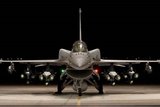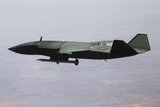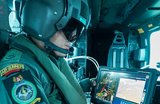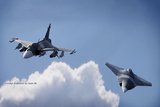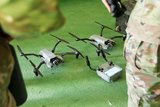German SIGINT effort progresses as Pegasus fleet modification work goes ahead
Bombardier will receive two more jets as part of the German Pegasus surveillance aircraft project. (Photo: Bombardier)
The Pegasus project, headed by Hensoldt, celebrated a recent milestone as the first Global 6000 aircraft arrived for modification at Bombardier’s facility in Kansas, USA.
Bombardier Defense will perform major structural modifications to accommodate the Kalætron Integral SIGINT system developed by Hensoldt. Kalætron system collects and analyses military signals from radar and radio systems.
Following Bombardier’s preparatory work, the system will be integrated at Lufthansa Technik’s special mission aircraft competence centre in Germany.
The first Pegasus is scheduled to enter service in 2026.
The Pegasus (Persistent German Airborne Surveillance System) project aims to fulfil a SIGINT capability which has been missing in the German Armed Forces since the retirement of five Breguet BR1150 Atlantic aircraft in June 2010.
Until 2019, Germany had intended to introduce four SIGINT-configured MQ-4C Tritons to fulfil this capability but decided in favour of procuring crewed aircraft instead, in part due to concerns over airspace use.
Related Programmes in Defence Insight
More from Air Warfare
-
![Singapore Airshow 2026: Rafael highlights tailored effector solutions for different operational needs]()
Singapore Airshow 2026: Rafael highlights tailored effector solutions for different operational needs
Shephard spoke with Rafael’s CEO about the company’s effector offerings as well as his perspective on one-way attack drones.
-
![Singapore Airshow 2026: Airbus-RSAF H225M teaming tests point to future scalability]()
Singapore Airshow 2026: Airbus-RSAF H225M teaming tests point to future scalability
The tests between a Republic of Singapore Air Force H225M and Airbus Flexrotor uncrewed aerial system were designed to allow the crew to receive and process real-time data from the UAS while maintaining direct command and control.
-
![Singapore Airshow 2026: Saab eyes “share” in future fighter market, targets 2027 CCA demo flight]()
Singapore Airshow 2026: Saab eyes “share” in future fighter market, targets 2027 CCA demo flight
The Swedish government is expected to make a decision on the next steps of the Future Fighter System Concept programme by 2030, with the current second phase focusing on technology knowledge expansion and demonstration flights.
-
![Singapore Airshow: Red Cat ramps up portfolio development amid “key” APAC opportunities]()
Singapore Airshow: Red Cat ramps up portfolio development amid “key” APAC opportunities
In the wake of its 1,842% year-on-year revenue increase in Q4 2025, Red Cat sees mass opportunities in the Asia-Pacific region as the company eyes an ongoing production increase and market growth.









